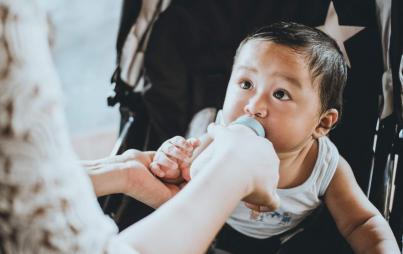
Credit: Thinkstock
Surprise: Sex-ed programming is in the news this week for making some parents very angry. At Acalanes High School in Lafayette, California, parents of 13- and 14-year-olds are in a huff over their children's sex-ed class, which has been taught by employees of Planned Parenthood without their prior knowledge.
Surprise again: Fox News is further stirring the pot of outrage. In its story about the school battle, it quotes "concerned" and "fuming" moms and dads to present a faux-shocking tale of corrupted youth and their victimized parents. The story makes hay over the sex-ed methods and materials employed in the class, including a checklist that asks students if they are "ready for sex," a worksheet that describes how to give and obtain consent for sex, and a diagram that uses a "genderbread" person for lessons in gender identity. Some of the documents even ask if the young teens have water-based lubricants and condoms, and if they could handle a possible venereal infection or pregnancy.
The documents also explain how a boy should receive consent before having sex with a possible partner, using such statements as, "Do you want to go back to my place?" and "Is it OK if I take my pants off?" It even teaches about gender identity, encouraging students to identify themselves as either "agender," "bigender" or "two spirit."
In other words, it's a comprehensive, thoughtful and entirely rational program. And the fact that it could inspire such ire reveals deeper issues at the heart of our country's flawed sex-ed approach.
Lamenting My Lack Of Better Sex-Ed
I'm not a parent, but as a 28-year-old female who very well remembers the lack of sex education in the Kansas public school system I grew up in, I'm relieved that the younger generation is finally getting an education with a dose of reality.
I had sex at a young age (ahem, 14), which is difficult for me to admit even now—mainly because society thinks of it as "too young." While, yes, it was young, it was also consensual, and I don't regret it. However, I will admit that I had no idea what I was doing. My preferred form of birth control was the "pullout" method until I was 18. And the thought of me, a privileged girl from Kansas' affluent Johnson County, getting an STD was beyond my comprehension.
While I managed to survive teenage sex with no harm done, other girls from my high school weren't so lucky. I know of many who had to contend with unwanted pregnancies and STDs, and there were even rumors of date rape. I blame a lot of that on the sexual education we received in my high school, which pretty much boiled down to this: Abstinence was the key to not getting pregnant, and the only thing you needed to know about STDs was that AIDS could kill you. There was nothing about consent and very little about safe sex practices.
Planned Parenthood's teaching sounds like an ideal antidote to a sick system. Maybe a portion of the material being taught in Lafayette is too adult for some 13- and 14-year-olds—but it is likely strikingly relevant for others. Some of us, myself included, feel or felt the urge to have sex at a young age. And I know in my case, all the abstinence training in the world couldn't hinder these teenage impulses.
More troubling still is what this reveals about lingering parental attitudes toward teen intimacy. Even now, in 2014—and despite the fact that many of the parents were probably themselves sexually active when young—teen sex is seen as taboo, and conversations about it are avoided or outright dismissed.
Until parents in Lafayette and elsewhere face the reality of teenage behavior, there will continue to be protests against ready-for-sex checklists, safe-sex measures and other like-minded initiatives that have been proven to curb teen pregnancy and STDs. The hardest question any parent can ask is also the most important: Do you really want your child to be ashamed of sex, just because you're the one not ready for them to have it?







